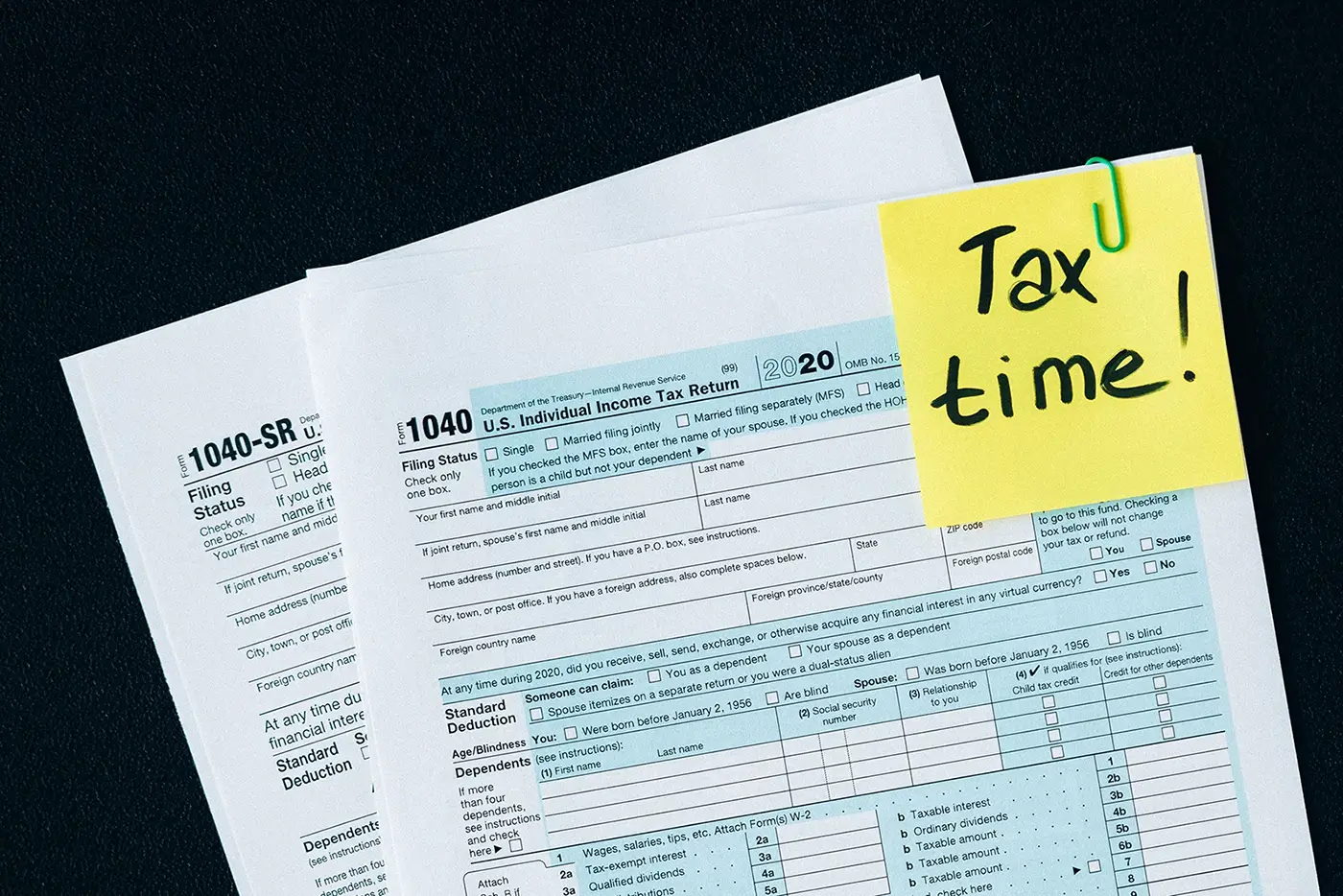Did you know more than 68.2% of all Fortune 500 companies are incorporated in Delaware?
The state's business-friendly law and tax climate are part of why it's the most popular option for LLCs. There is no state sales tax on intangible personal property and no state income tax for corporations conducting activities outside the state.
Before you can take advantage of this business hub, there are some important address requirements for Delaware LLC formation to keep in mind. This comprehensive guide will help you understand the nuances of Delaware LLC address requirements and how to navigate them.
When you need a physical business address for a Delaware limited liability company
Although this business address does not need to be in the State of Delaware itself, you need a physical address that will be known as your principal place of business. This principal state of business entity is often referred to as the headquarters from where business decisions are made or where the company is operating from.
So if you're asking yourself, "Do I need a physical address to incorporate?" the answer is yes. However, you don’t necessarily need to have a physical office space.
Steps to create a Delaware LLC
Creating an LLC in Delaware involves three simple steps:
- File a Certificate of Formation: Delaware LLCs are formed by filing a Certificate of Formation with the Delaware Division of Corporations. This is a legal document establishing the existence of an LLC in Delaware.
- Include required information: When filing the Certificate of Formation, you’ll need to include a lot of information about your LLC. These can be the LLC name, employer identification number (EIN), a Delaware registered agent and office address for service of process, the date of business formation, the name and signature of the authorized person filing the form, the duration of the LLC, and additional optional provisions.
- Submit the formation documents and pay the filing fees: Delaware charges a filing fee of $90 to form an LLC if you file by mail. You must provide a credit card number or check with the Division of Corporation’s cover sheet. To file by mail, you’ll need to send the completed Certificate of Formation and cover sheet to:
Delaware Division of Corporations
John G. Townsend Bldg
401 Federal Street, Suite 4
Dover, DE 19901
Alternatively, you can file online at the Delaware Division of Corporations website. For an out-of-state business entity, you will instead complete a Certificate of Registration, which will cost you $200. You must also submit a Certificate of Existence from the home state where your foreign LLC was formed.
Benefits of having a Delaware address for your LLC
79% of all U.S. initial public offerings in 2022 happened in Delaware. So, why is Delaware such a popular option for entrepreneurs and business owners?
- Ease of compliance: A Delaware LLC is the simplest, most flexible type of legal entity to form. You only need to file a Certificate of Formation and pay a filing fee. Additionally, there is little maintenance, as Delaware LLCs don’t file annual reports and only pay a flat $300 annual tax to the Internal Revenue Service (IRS), due on June 1 every year.
- Federal tax benefits: Delaware LLC owners are exempt from gross receipts tax and state taxes on intangible personal assets, such as patent and trademark leases. This means that LLCs incorporated in Delaware are not subject to state income tax on any property or activity conducted outside the state.
- Professional image: Delaware LLCs are not required to publicly disclose their owners, member information, or financial details. This protects the owners’ privacy and allows a professional image to be maintained without compromising personal information.
- No business license required: Unlike in other states, you aren’t required to obtain a Delaware business license or register with the Department of Revenue. This makes it very attractive to incorporate here since you don’t need to deal with the paperwork and costs associated with obtaining a business license.
- Favorable litigation: The Delaware Court of Chancery is the most prestigious business court in the nation and is recognized for its pro-business decisions. Cases are argued before judges rather than juries, which helps speed up the process. You will know early on whether to fight or settle a case, saving time and money on legal fees.
These benefits are also easy to access outside of Delaware, as long as you comply with Delaware address requirements for LLC formation.
Drawbacks of having a Delaware address for your LLC
Despite the many benefits of Delaware incorporation, there are some drawbacks to having an address here:
- Rent costs: The high demand for office space in Delaware is driving up the cost of rent. This can be prohibitively expensive for small businesses and startups who need to keep their overhead costs in check.
- Administrative management needs: Entrepreneurs who establish a Delaware LLC address will require a designated manager or office staff to manage the day-to-day operations and paperwork associated with setting up and maintaining a Delaware LLC.
- Limited flexibility: Delaware LLCs must follow certain rules, such as having a registered agent. This could limit some of the flexibility found with other business structures.
- Less privacy: While LLCs in Delaware are not required to disclose owner and member information publicly, they must meet certain requirements, such as filing an annual report. This could compromise the privacy of company owners and members.
What are the best alternatives to having a physical Delaware address for an LLC?
If you don’t run your business from a physical space in Delaware, your business address can be anywhere else in the United States or even another part of the world. For instance, if you’re operating out of California, you can use a California address while forming an LLC in Delaware.
Similarly, if you’re not operating within the U.S., you can also use your address in Australia while incorporating a company in Delaware. However, some actions (like opening up a U.S. bank account) will require a U.S. address.
If you’re having trouble deciding where your business address should be, here are several popular options to think through:
1. Virtual mailing address
A virtual mailing address is one with an assigned physical space, such as an office building or commercial suite, that receives mail on your behalf. It eliminates the need for renting out a physical office space, as it also provides mail forwarding services.
You also maintain anonymity which is great for companies prioritizing privacy. Stable is a leading provider of virtual mailing services. You receive a virtual address that you can access remotely when you link it with a virtual mailbox.
2. Registered agent address
A registered agent is a person or company designated to receive official legal documents (like service of process and tax notices) on behalf of the LLC. They are a point of contact between you and the Delaware Secretary of State, and they must have a physical address in the state where the LLC is registered.
You can appoint yourself as the registered agent if you have an address inside Delaware or hire a registered agent service provider with a physical address there, like Stable.
For a small fee of $25, Stable will streamline the entire process while keeping your LLC registered and in good standing.
3. Residential address
Alternatively, you could use your residential address as your LLC’s business address — if it’s in Delaware. This is a great option if you’re operating a home-based business, as you won’t have to worry about renting out a physical space.
However, you must keep in mind that your name and address will be public knowledge, which could have privacy implications. Additionally, the legal and compliance requirements for setting up a residential address could be tricky, so it’s wise to seek legal advice if you decide to go this route.
You may end up paying a lot more in legal fees compared to just getting a virtual address.
4. Co-working space
Co-working spaces are shared working environments and provide all the amenities of a traditional office, like desks, chairs, conference rooms, and internet access. It’s an economical option if you need to rent out a physical space for your LLC. They are also often located in prime areas, which is great for meeting clients and partners.
A Delaware LLC can use a rented co-working space as its official business address, but this comes with the same drawbacks as using a residence, such as:
- Costs: You must pay for the space you’re renting and any additional amenities, which can add up quickly.
- Accessibility: Depending on your chosen plan, you may not have 24/7 access to your workspace. This could be a problem if you need to send or receive mail on your own time.
- Flexibility: You could be tied into a long-term lease, which may not be ideal if your business needs to move or scale quickly.
Delaware corporation laws still apply regardless of your business address location
Even if your physical business address is not in Delaware, you’ll automatically opt into Delaware laws once you file to incorporate or form your LLC. One of these requirements is that you must have a Delaware registered agent.
Other laws Delaware LLCs deal with include:
- Filing annual tax returns and paying franchise taxes each year: Delaware LLCs must submit a yearly tax return and pay the corresponding annual franchise tax.
- LLC operating agreements: LLCs must have an operating agreement that outlines the company’s management and ownership rules.
- Personal liability protection: LLCs provide personal liability protection for owners and members, meaning they won’t be held personally responsible for any debts or liabilities of the business.
- Taxation: Delaware LLCs are usually taxed as pass-through entities, S corporations, or C corporations, meaning they don’t pay taxes at the corporate level. Instead, the LLC’s profits are “passed through” to its owners, who pay taxes at their individual rates.
How Stable can help your LLC thrive
Navigating address requirements for Delaware LLC formation doesn’t have to be tricky. With the right knowledge and resources, you can decide which type of address works best for your business.
Whether you choose to use a registered agent, residential address, or co-working space, ensure you understand the legal and compliance requirements of each. With Stable, you can simplify this process with a professionally registered address and experienced registered agents.
Stable provides permanent virtual addresses and mailboxes, so you never have to worry about mail or changing addresses again. We’ll digitize all mail you receive, and you can scan, forward, shred (and even deposit checks!) from anywhere in the world.
Get started with Stable here and get a virtual business address + mailbox in less than three minutes!
Disclaimer: Stable is not a legal or accounting firm; therefore, we cannot provide legal or tax advice. You should consult legal and tax professionals for specific advice on how to meet ongoing obligations that apply to you and your company.




